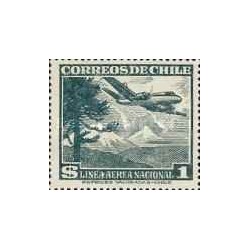- جدید
- ناموجود



توجه : درج کد پستی و شماره تلفن همراه و ثابت جهت ارسال مرسوله الزامیست .
توجه:حداقل ارزش بسته سفارش شده بدون هزینه پستی می بایست 180000 ریال باشد .
توجه : جهت برخورداری از مزایای در نظر گرفته شده برای مشتریان لطفا ثبت نام نمائید.

Aussem in 1927
|
|
| Full name | Cäcilia Edith Aussem |
|---|---|
| Country (sports) | |
| Born | 4 January 1909 Cologne, German Empire |
| Died | 22 March 1963 (aged 54) Portofino. Italy |
| Retired | 1935 |
| Plays | Right-handed |
| Singles | |
| Highest ranking | No. 2 (1930) |
| Grand Slam Singles results | |
| French Open | W (1931) |
| Wimbledon | W (1931) [1] |
| Doubles | |
| Grand Slam Doubles results | |
| French Open | F (1931) |
| Grand Slam Mixed Doubles results | |
| French Open | W (1930) |
| Wimbledon | QF (1930) [1] |
Cilly Aussem (German pronunciation: [ˈʦiːli̯ə ˈaʊ̯sm]; 4 January 1909 – 22 March 1963) was a German female tennis player.
She was the first German, male or female, to win the singles title at Wimbledon in 1931. She also won the women's single titles at the French Championships and German Championships in 1931. Aussem's coach and mixed doubles partner was Bill Tilden. They won the mixed doubles title at the 1930 French Championships.
According to A. Wallis Myers of The Daily Telegraph and the Daily Mail, Aussem was ranked in the world top ten in 1928, 1930, 1931, and 1934, reaching a career high of World No. 2 in those rankings in 1930 and 1931 behind Helen Wills Moody.[2]
| Lise Meitner | |
|---|---|

Lise Meitner in 1946
|
|
| Born | 7 November 1878[1][2] Vienna, Austria-Hungary |
| Died | 27 October 1968 (aged 89) Cambridge, England |
| Residence | Austria, Germany, Sweden, United Kingdom |
| Citizenship | Austria (pre-1949), Sweden (post-1949) |
| Alma mater | University of Vienna |
| Known for | Nuclear fission |
| Awards |
|
| Scientific career | |
| Fields | Physics |
| Institutions | Kaiser Wilhelm Institute University of Berlin, Manne Siegbahn Laboratory (sv) University College of Stockholm |
| Doctoral advisor | Franz S. Exner |
| Other academic advisors | Ludwig Boltzmann Max Planck |
| Doctoral students | Arnold Flammersfeld Kan-Chang Wang Nikolaus Riehl |
| Other notable students | Max Delbrück Hans Hellmann |
| Influenced | Otto Hahn |
| Signature | |
Lise Meitner (English: /ˈliːzə ˈmaɪtnər/; 7 November 1878 – 27 October 1968) was an Austrian-Swedish physicist who worked on radioactivity and nuclear physics. Meitner and Otto Hahn led the small group of scientists who first discovered nuclear fission of uranium when it absorbed an extra neutron; the results were published in early 1939.[4][5] Meitner and Otto Frisch understood that the fission process, which splits the atomic nucleus of uranium into two smaller nuclei, must be accompanied by an enormous release of energy. Nuclear fission is the process exploited by nuclear reactors to generate heat and, subsequently, electricity.[6] This process is also the basis of the nuclear weapons that were developed in the U.S. during World War II and used against Japan in 1945.
Meitner spent most of her scientific career in Berlin, Germany, where she was a physics professor and a department head at the Kaiser Wilhelm Institute; she was the first woman to become a full professor of physics in Germany. She lost these positions in the 1930s because of the anti-Jewish Nuremberg Laws of Nazi Germany, and in 1938 she fled to Sweden, where she lived for many years, ultimately becoming a Swedish citizen.
Meitner received many awards and honors late in her life, but she did not share in the 1944 Nobel Prize in Chemistry for nuclear fission that was awarded exclusively to her long-time collaborator Otto Hahn. In the 1990s, the records of the committee that decided on that prize were opened. Based on this information, several scientists and journalists have called her exclusion "unjust", and Meitner has received a flurry of posthumous honors, including naming chemical element 109 meitnerium in 1992.[7][8][9][10][11][12][13] Despite not having been awarded the Nobel Prize, Lise Meitner was invited to attend the Lindau Nobel Laureate Meeting in 1962.[14]
تشکر نظر شما نمی تواند ارسال شود
گزارش کردن نظر
گزارش ارسال شد
گزارش شما نمی تواند ارسال شود
بررسی خود را بنویسید
نظر ارسال شد
نظر شما نمی تواند ارسال شود

check_circle
check_circle















